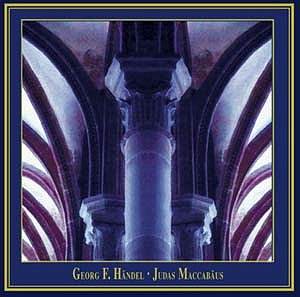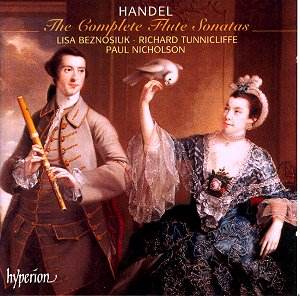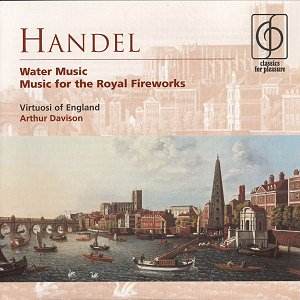 Composer: Georg Friedrich Handel
Composer: Georg Friedrich Handel
Works: Judas Maccabaeus
Performers: Sinéad Pratschke, soprano; Catherine King, mezzo-soprano; Charles Humphries, alto; Marc LeBrocq, tenor; Christopher Purves, bass; Maulbronner Kammerchor; Musica Florea Prague; Jürgen Budday
Recording: Rec: September 22-23, 2000, Maulbronn Monastery, Germany
Label: K&K Verlagsanstalt
Handel’s oratorio Judas Maccabaeus stands as a remarkable testament to the composer’s ability to marry dramatic narrative with lush musical expression. Premiered in 1746, the oratorio reflects the fervor of the mid-18th century, a time when patriotic themes resonated deeply with audiences. It encapsulates the Maccabean revolt against the Seleucid Empire, presenting not only the triumphs and tribulations of its hero, Judas, but also evoking a broader commentary on liberty and sacrifice. This particular recording, captured live at the acoustically rich Maulbronn Monastery, adds a layer of historical resonance that enhances the listener’s experience.
The performance, led by Jürgen Budday, benefits from the natural reverberation of the monastery, which complements the choir’s sound beautifully. The Maulbronner Kammerchor delivers a rich, rounded tone, achieving an ideal balance across its sections. The articulation is commendable, ensuring that even the intricate counterpoint of Handel’s writing is clearly delineated. This attention to detail makes the choir a standout feature of this recording, particularly in the powerful choral movements that are a hallmark of Judas Maccabaeus. The ensemble’s performance of the dramatic chorus “Ah, wretched Israel” is especially noteworthy; it unfolds with a haunting melody that is both poignant and emotionally charged, illustrating the collective despair of the Israelites, and showcases the choir’s ability to convey deep feeling.
Soloists Catherine King and Sinéad Pratschke shine in their respective arias; King’s interpretation of “Pious orgies” and “O liberty” stands out for its lyrical beauty and emotional depth. Her execution of these slow-moving melodies reveals Handel’s exceptional writing for the female voice, allowing King to display her nuanced expressiveness. Pratschke’s contributions, particularly in “Come, ever smiling liberty,” exhibit her wide vocal range and an engaging stage presence that brings the text to life. While Charles Humphries provides a solid alto performance, his voice occasionally lacks the warmth and richness one might desire, which slightly detracts from the overall blend in ensemble passages.
The technical aspects of this live recording merit attention as well. While live performances carry inherent risks, including occasional imbalances or audience sounds, the engineering here largely mitigates these challenges. The clarity of the instrumentalists—particularly the delicate interplay between the violin and the vocal lines—enhances the listener’s appreciation of Handel’s intricate textures. The recording captures the essence of the performance, allowing the expressive subtleties of the music to resonate fully.
This version of Judas Maccabaeus merits strong recommendation for its compelling performances and the vivid acoustic backdrop of the Maulbronn Monastery. The combination of an excellent choir, skilled soloists, and the venue’s natural acoustics creates a recording that embodies the spirit of Handel’s oratorio. While it may not eclipse some of the more established renditions in the catalog, such as those featuring renowned conductors and soloists, it stands as a commendable interpretation that invites both new listeners and seasoned aficionados to engage with this vital work in the Handelian repertoire.

